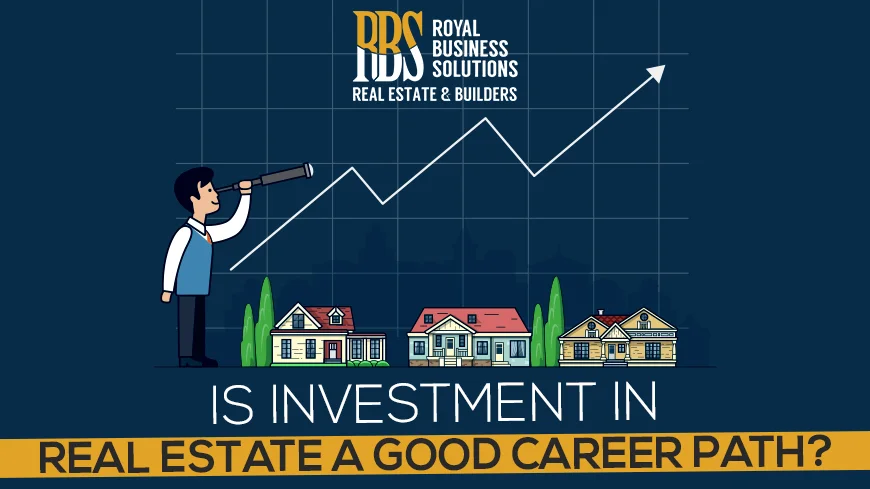Thinking about diving into the real estate business? You’re not alone. The allure of flexible hours, the potential for high earnings, and the satisfaction of helping people find their dream homes are just a few reasons why many consider this path. But is it a good career choice for beginners? Let’s break it down.
Understanding the Real Estate Industry
Before jumping in, it’s crucial to understand what real estate is all about. Real estate involves the buying, selling, and renting of properties, including residential, commercial, industrial, and land. Each type has its unique dynamics and requires a different approach.
Why Choose a Career in Real Estate?
One of the main attractions of a real estate career is the potential for high earnings. Unlike salaried positions, your income in real estate is directly tied to your performance. If you excel, the financial rewards can be significant. Additionally, real estate offers a level of flexibility and independence that’s hard to find in other professions. You can often set your own hours and be your own boss, allowing for a better work-life balance.
Skills and Qualifications Needed
While you don’t necessarily need a college degree to start in real estate, having one can certainly help. More importantly, you’ll need strong communication, negotiation, and sales skills. Certifications and licenses are a must, and these vary by state. You’ll need to pass a licensing exam and possibly complete continuing education courses to maintain your license.
The Pros of a Real Estate Career
The financial rewards are a big pro, but there’s more to it. Many find personal satisfaction in helping clients make one of the biggest decisions of their lives. The job also offers a lot of variety – no two days are the same, and you’re not stuck behind a desk all day.
The Cons of a Real Estate Career
However, it’s not all sunshine and rainbows. Income can be uncertain, especially when starting out. The market is highly competitive, and it can take time to build a steady stream of clients. Stress and long hours are also part of the package, especially during peak buying and selling seasons.
Steps to Get Started in Real Estate
- Research and Understand the Market: Know what you’re getting into. Study the local real estate market, understand trends, and identify potential niches.
- Obtain Necessary Education and Certifications: Enroll in real estate courses, pass your licensing exam, and keep up with continuing education.
- Build a Professional Network: Connect with experienced agents, join professional organizations, and attend industry events.
Educational Pathways and Certifications
There are numerous real estate courses and degrees available. Online platforms offer flexible learning options, making it easier to balance studies with other commitments. After completing your coursework, you’ll need to pass a licensing exam. Joining professional organizations like the National Association of Realtors (NAR) can provide additional resources and networking opportunities.
Building a Successful Real Estate Career
Developing a solid business plan is crucial. Define your goals, identify your target market, and outline your strategies. Marketing and branding are also key. A strong online presence, professional website, and active social media accounts can help attract clients. Leveraging technology, such as real estate software and customer relationship management (CRM) systems, can streamline your operations.
Challenges New Real Estate Agents Face
Establishing a client base is one of the biggest challenges. It takes time to build trust and credibility in the market. Handling rejection and setbacks is part of the game. You’ll need resilience and a positive attitude to keep moving forward. Managing finances and sticking to a budget can also be tricky, especially with fluctuating incomes.
Strategies for Overcoming Challenges
Mentorship and training programs can be incredibly beneficial. Learning from experienced agents can provide insights and guidance. Continuing education helps you stay updated with industry trends and improve your skills. Financial planning and management are also crucial. Setting aside a portion of your earnings for slow months can help maintain financial stability.
Success Stories: Beginners Who Made It Big
Many successful real estate agents started with humble beginnings. Take the example of Barbara Corcoran, who began with a $1,000 loan and turned it into a multi-million-dollar business. These stories highlight the importance of determination, hard work, and strategic thinking. Learning from their journeys can provide valuable lessons and inspiration.
Alternatives to Becoming a Real Estate Agent
If selling properties isn’t your thing, there are other ways to enter the real estate industry. Real estate investing, property management, and real estate appraisal are just a few alternatives. Each of these roles requires different skills and offers unique opportunities.
The Future of the Real Estate Industry
The real estate industry is continuously evolving. Emerging trends such as virtual reality tours, AI-powered property management, and blockchain transactions are shaping the future. Staying ahead of these trends can provide a competitive edge. Market predictions suggest that urbanization, population growth, and economic factors will continue to drive demand for real estate.
Conclusion
Starting a career in real estate can be a rewarding journey for beginners. While it comes with its set of challenges, the potential benefits make it an attractive option. With the right education, skills, and strategies, you can build a successful and fulfilling career in this dynamic industry.


